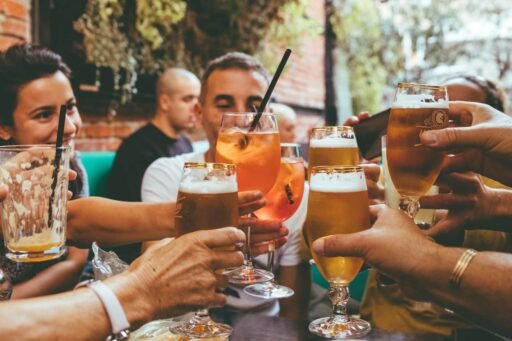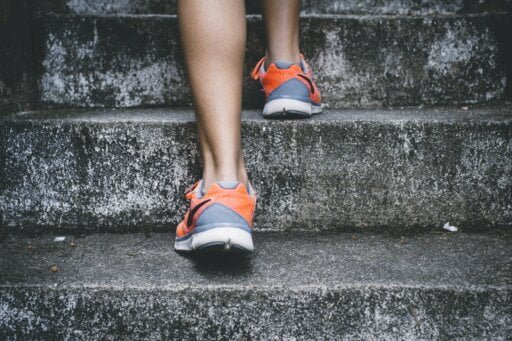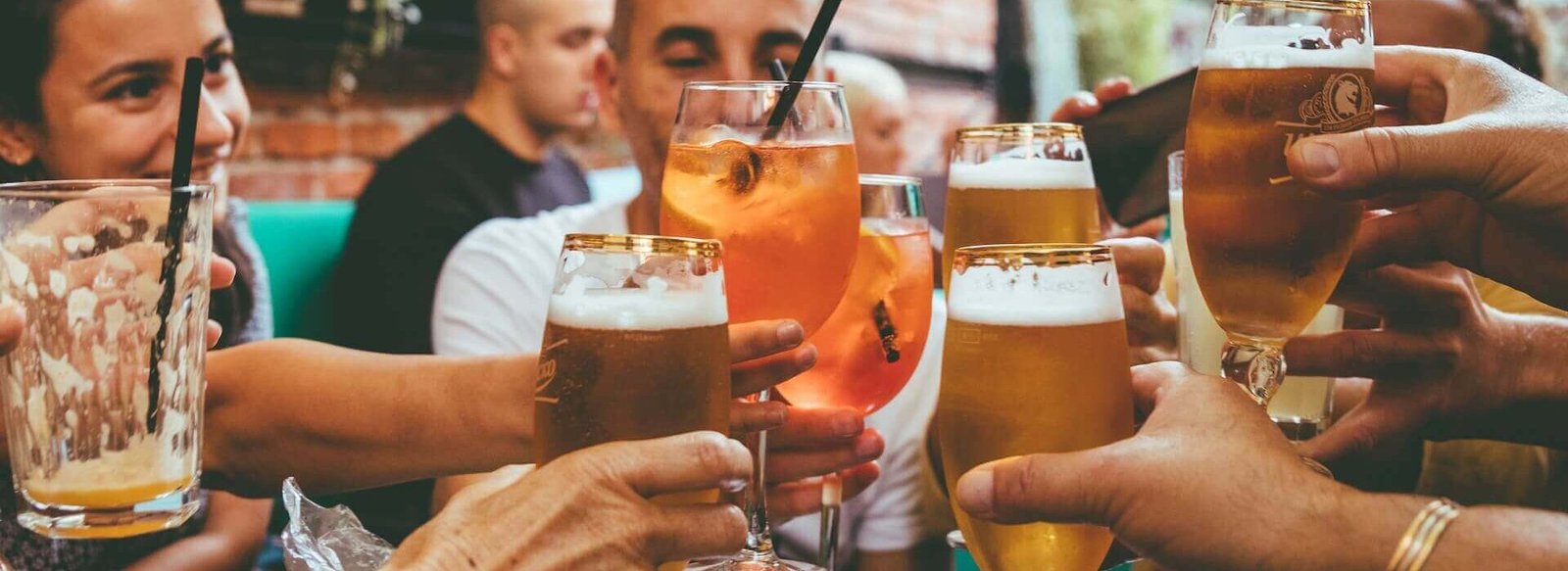Picture this: it’s a Saturday night, you’re out with friends, and the atmosphere is buzzing with excitement. One drink turns into two, and before you know it, you’ve had a few more. But amidst the laughter and good times, you start feeling an all-too-familiar wave of anxiety washing over you. What’s going on? In this article “Why Anxiety After Drinking”, we’ll explore the perplexing phenomenon of anxiety after drinking and uncover the underlying reasons behind it. So grab a seat, take a deep breath, and let’s uncover the truth behind this curious post-drinking experience.
Overview of Anxiety After Drinking
What is anxiety?
Anxiety is a natural response to stress that involves feelings of fear, worry, and unease. It is a normal and often helpful emotion that helps you stay alert and focused in potentially dangerous situations. However, when anxiety becomes excessive or occurs without a real threat, it can interfere with daily life and well-being.
What is alcohol-induced anxiety?
Alcohol-induced anxiety refers to the experience of heightened anxiety symptoms after consuming alcohol. While some individuals may feel relaxed and at ease while drinking, others may experience increased anxiety levels. This can occur both during and after drinking alcohol, and the symptoms may range from mild to severe.
Prevalence of anxiety after drinking
Anxiety after drinking is a common phenomenon, and many individuals report experiencing heightened anxiety levels after consuming alcohol. According to studies, alcohol can cause or exacerbate anxiety symptoms in approximately 20% of individuals. It is important to recognize the prevalence of this issue to effectively address and manage it.
Causes of Anxiety After Drinking
Alcohol’s impact on neurotransmitters
Alcohol affects various neurotransmitters in the brain, including GABA (gamma-aminobutyric acid) and glutamate. GABA is responsible for inhibiting brain activity and promoting relaxation, while glutamate is involved in excitatory processes. When alcohol is consumed, it enhances the effects of GABA, leading to feelings of relaxation. However, as the alcohol wears off, GABA levels decrease, and glutamate levels increase, which can contribute to anxiety.
Genetics and predisposition to anxiety
Genetics also play a role in an individual’s susceptibility to anxiety after drinking. Some individuals may be more genetically predisposed to experiencing heightened anxiety symptoms when alcohol is consumed. These individuals may have a lower tolerance for alcohol or possess genetic variations that affect the metabolism and processing of alcohol in the body.
Co-occurring mental health disorders
Individuals with pre-existing mental health disorders, such as generalized anxiety disorder or social anxiety disorder, may be more susceptible to experiencing anxiety after drinking. Alcohol can interact with these underlying conditions, leading to an exacerbation of anxiety symptoms. It is crucial to consider a person’s mental health history when examining the causes of anxiety after drinking.

Symptoms of Anxiety After Drinking
Physical symptoms
Physical symptoms of anxiety after drinking can include increased heart rate, sweating, trembling, shortness of breath, and gastrointestinal distress. These symptoms can be similar to those experienced during a panic attack and can contribute to feelings of discomfort and distress.
Psychological symptoms
Psychological symptoms of anxiety after drinking may include excessive worrying, feelings of unease or impending doom, difficulty concentrating, and intrusive thoughts. Individuals may also experience heightened irritability and emotional sensitivity.
Behavioral symptoms
Behavioral symptoms that may accompany anxiety after drinking can include avoidance of social situations, increased isolation, restlessness, and difficulty sleeping. These behaviors can further contribute to feelings of anxiety and impact overall well-being.
Alcohol Withdrawal and Anxiety
Understanding alcohol withdrawal
Alcohol withdrawal refers to the set of symptoms that occur when a person who has been regularly consuming alcohol suddenly stops or significantly reduces their alcohol intake. It occurs due to the body’s dependence on alcohol and its inability to function properly without it. Withdrawal symptoms can vary in severity and may include anxiety, tremors, sweating, nausea, and even seizures in severe cases.
Anxiety as a withdrawal symptom
Anxiety is a common withdrawal symptom experienced by individuals who have developed a dependence on alcohol. As the body adjusts to the absence of alcohol, it can lead to an increase in anxiety levels. Additionally, individuals may also experience cravings for alcohol, which can further contribute to anxiety symptoms.
Severity and duration of alcohol withdrawal anxiety
The severity and duration of alcohol withdrawal anxiety can vary depending on several factors, including the individual’s level of alcohol consumption, the duration of dependence, and their overall physical and mental health. In some cases, anxiety symptoms may peak within the first few days of alcohol cessation and gradually subside over time. However, in severe cases of alcohol withdrawal, medical intervention may be necessary to manage anxiety and other withdrawal symptoms.

Alcohol-induced Panic Attacks
Difference between anxiety and panic attacks
While anxiety and panic attacks share similarities, they are distinct experiences. Anxiety refers to a more prolonged state of worry and unease, whereas a panic attack is a sudden and intense episode of fear or discomfort. Panic attacks are characterized by symptoms such as a rapid heart rate, chest pain, sweating, trembling, and a sense of impending doom. Alcohol can increase the likelihood and severity of panic attacks, especially in individuals prone to anxiety.
How alcohol triggers panic attacks
Alcohol can trigger panic attacks in several ways. Firstly, alcohol is known to disrupt the balance of neurotransmitters in the brain, which can lead to heightened excitability and an increased risk of panic attacks. Additionally, alcohol acts as a depressant on the central nervous system, causing relaxation and sedation. However, when alcohol wears off, the body can experience a rebound effect, leading to increased anxiety and potentially triggering a panic attack.
Managing panic attacks while drinking
If you experience panic attacks while drinking, it is essential to prioritize your well-being and take necessary steps to manage and minimize the risk of panic attacks. This can include limiting alcohol consumption, being mindful of alcohol’s impact on your mental health, and incorporating relaxation techniques such as deep breathing exercises or meditation.
Alcohol and Sleep Disorders
Impact of alcohol on sleep
While alcohol can initially have a sedative effect, it can significantly disrupt the quality of sleep. Alcohol consumption can interfere with the normal sleep cycle, leading to fragmented and shallow sleep patterns. This disruption can result in fatigue, daytime drowsiness, and decreased overall sleep quality.
Relation between sleep disorders and anxiety
There is a bidirectional relationship between sleep disorders and anxiety. Individuals with anxiety are more likely to experience sleep disturbances, and the presence of sleep disorders can exacerbate anxiety symptoms. When it comes to anxiety after drinking, alcohol’s impact on sleep can contribute to heightened anxiety levels the following day.
Tips for improving sleep quality after drinking
To improve sleep quality after drinking, it is advisable to limit alcohol consumption and allow for a sufficient amount of time to pass between consuming alcohol and going to bed. Creating a calming bedtime routine, avoiding stimulating activities before sleep, and practicing good sleep hygiene can also help promote better sleep.

Role of GABA and Glutamate in Anxiety After Drinking
GABA and its calming effects
GABA (gamma-aminobutyric acid) is a neurotransmitter that plays a crucial role in reducing anxiety and promoting relaxation. Alcohol enhances the effects of GABA, contributing to its calming and sedative properties. However, as alcohol wears off, GABA levels decrease, leading to a potential imbalance and increased anxiety.
Glutamate’s role in anxiety
Glutamate is an excitatory neurotransmitter that stimulates brain activity. Excessive levels of glutamate can lead to increased anxiety and an overactive nervous system. Some individuals may be more sensitive to the effects of glutamate, leading to heightened anxiety symptoms after drinking.
Imbalance of GABA and glutamate levels after drinking
When alcohol is consumed, it initially enhances the effects of GABA, promoting relaxation and a sense of calm. However, as the body metabolizes alcohol, GABA levels decrease and glutamate levels increase. This can result in an imbalance between these neurotransmitters, leading to increased anxiety symptoms after alcohol consumption.
Alcohol as a Coping Mechanism
Alcohol’s temporary relief from anxiety
For some individuals, alcohol can provide temporary relief from anxiety symptoms. The sedative properties of alcohol can induce relaxation and temporarily alleviate feelings of worry and unease. However, relying on alcohol as a coping mechanism can be detrimental in the long run and may lead to the development of alcohol dependency.
Development of alcohol dependency
Using alcohol as a means to cope with anxiety can lead to the development of alcohol dependency. Over time, the brain becomes accustomed to the effects of alcohol and may require increasing amounts to achieve the desired calming effect. This can result in a cycle of reliance on alcohol, potentially exacerbating both anxiety and alcohol-related problems.
Alternative coping strategies
It is important to explore and implement alternative coping strategies for managing anxiety instead of relying solely on alcohol. This can include practicing relaxation techniques, engaging in regular physical exercise, seeking therapy or counseling, and developing healthy stress management strategies. By exploring healthier coping mechanisms, individuals can better manage anxiety and work towards overall well-being.
Managing Anxiety After Drinking
Limiting alcohol consumption
One of the most effective ways to manage anxiety after drinking is to limit alcohol consumption. This can involve setting personal limits, pacing oneself when drinking, and being aware of the individual’s tolerance for alcohol. By being mindful of one’s alcohol intake, individuals can reduce the risk of experiencing heightened anxiety symptoms.
Seeking professional help
If anxiety after drinking becomes a recurring issue and significantly impacts one’s daily life, seeking professional help is highly recommended. Mental health professionals can provide guidance, support, and interventions tailored to the individual’s specific needs. They can help address underlying anxiety disorders, provide coping mechanisms, and explore potential treatment options.
Implementing stress management techniques
In addition to seeking professional help, incorporating stress management techniques into one’s daily life can be beneficial in managing anxiety after drinking. This can include practices such as meditation, deep breathing exercises, mindfulness, and engaging in hobbies or activities that promote relaxation. By proactively managing stress, individuals can better cope with anxiety and minimize its impact on overall well-being.
Conclusion: Why Anxiety After Drinking
Understanding the factors contributing to anxiety after drinking is crucial for individuals to make informed choices and seek appropriate support. Alcohol’s impact on neurotransmitters, genetic predisposition, co-occurring mental health disorders, and alcohol withdrawal can all contribute to anxiety symptoms. By recognizing the symptoms, managing alcohol consumption, seeking professional help when needed, and implementing stress management techniques, individuals can effectively manage anxiety after drinking and work towards improved mental health and well-being.
Frequently Asked Questions:
- Why does alcohol make you anxious after? Alcohol can disrupt neurotransmitters, leading to increased anxiety after drinking. It also affects sleep patterns, contributing to feelings of anxiety the next day.
- How do you calm a hangxiety? To calm hangxiety, hydrate, eat nutritious foods, engage in light exercise, practice deep breathing, and consider activities that promote relaxation, such as meditation or gentle yoga.
- Why is hangxiety so bad? Hangxiety can feel intense due to alcohol’s impact on the brain and body. Dehydration, disrupted sleep, and changes in neurotransmitters contribute to heightened anxiety after drinking.
- How to get rid of anxiety fast? To alleviate anxiety quickly, practice deep breathing, engage in grounding exercises, focus on positive thoughts, and consider activities that bring comfort and relaxation.
- When does anxiety start after drinking? Anxiety after drinking may start as alcohol leaves the system, typically a few hours after consumption. The intensity and duration can vary based on factors such as alcohol content and individual sensitivity.
- Can alcohol cause anxiety for days? Yes, alcohol can contribute to anxiety for several days, especially in individuals prone to hangxiety. Staying hydrated, getting rest, and practicing self-care can help alleviate lingering anxiety.
- Why do I feel weird 2 days after drinking? Feeling weird two days after drinking may be due to alcohol’s lingering effects on the body and brain. Adequate rest, hydration, and healthy nutrition can aid in recovery.
- Which foods help with anxiety? Foods rich in omega-3 fatty acids, antioxidants, and B vitamins can support mental well-being. Examples include fatty fish, berries, leafy greens, and whole grains.
- How long can a Hangxiety last? Hangxiety duration varies. It may last a day or more, depending on factors like alcohol intake, individual tolerance, and overall health. Taking care of yourself with rest and hydration can help alleviate symptoms.
- How long does an anxiety hangover last? Anxiety hangover duration varies. It can last a day or more, with symptoms peaking within 24 to 72 hours after drinking. Adequate self-care supports recovery.
- Which alcohol is best for anxiety? Alcohol affects individuals differently. Choosing beverages with lower alcohol content and staying within recommended limits may reduce the likelihood of heightened anxiety.
- What is the 3 3 3 rule anxiety? The 3 3 3 rule involves acknowledging three things you see, hear, and feel during a moment of anxiety. This grounding technique helps shift focus and reduce anxious thoughts.
- What is anxiety after drinking called? Anxiety after drinking is commonly referred to as hangxiety, a combination of “hangover” and “anxiety.” It describes the heightened anxious feelings that can follow alcohol consumption.
- Why do I feel so weird after drinking? Feeling weird after drinking may be attributed to alcohol’s impact on the central nervous system, dehydration, and disrupted sleep patterns. It’s a common response as the body processes alcohol.
- Is Coffee good for anxiety? For some, moderate coffee consumption may offer alertness, but excessive caffeine intake can contribute to anxiety. It’s essential to monitor individual tolerance and adjust caffeine intake accordingly.
- What does anxiety feel like? Anxiety can manifest as a range of physical and emotional symptoms, including restlessness, racing thoughts, increased heart rate, muscle tension, and a sense of impending doom.
- Does zinc lower anxiety? Zinc plays a role in brain function, and deficiency may contribute to anxiety. However, individual responses vary, and it’s crucial to consult with a healthcare professional before making significant dietary changes.
- Does drinking water help anxiety? Hydration is essential for overall well-being, and adequate water intake may contribute to better mental health. While it won’t directly eliminate anxiety, staying hydrated supports overall bodily functions.
- Is alcohol okay with anxiety? Individual responses to alcohol vary. While some may find temporary relief, excessive alcohol can worsen anxiety. Moderation and self-awareness are key in managing alcohol consumption.
- Can a glass of wine calm anxiety? In some individuals, a small amount of wine may temporarily alleviate anxiety due to its relaxing effects. However, excessive alcohol can contribute to heightened anxiety, so moderation is advised.
Source: Anxiety
